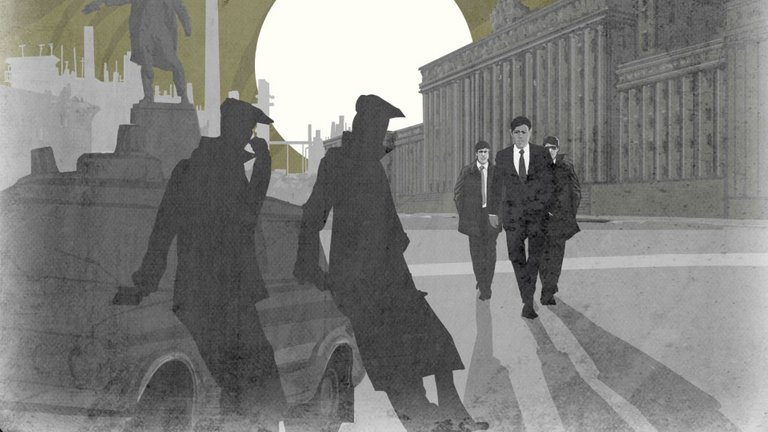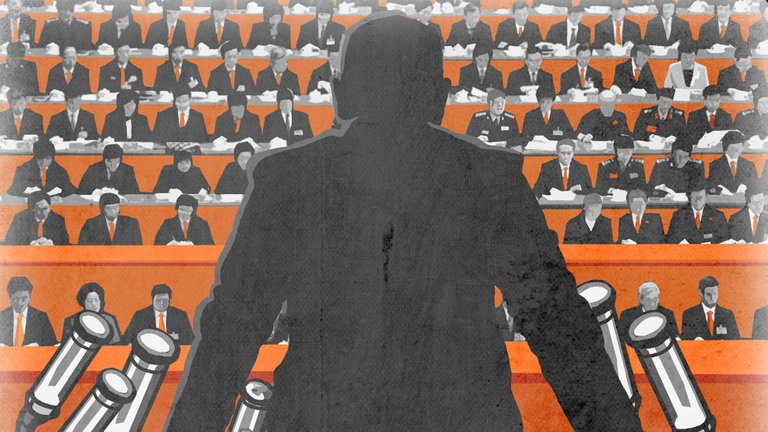
Corruption, waste and mismanagement in a trip to the Union of Orange Republics! For The People
It seems that since the beginning of our passage through this land corruption has always been a point of debate among the peoples of the world, and never this debate was more present than in the years of the so old communism of the Soviet Union, a society full of embezzlement and mismanagement motivated by the bad practices of those who claimed to be in charge, the ambition of power ends up blinding even the most idealistic character and this is one of the issues that deals For The People, a video game that has a bit of everything but where the political discourse always comes first when we propose to manage as best as possible a part of that government, having power as the main objective and as a means to ensure control, is a premise that I have always liked, games like Papers Please (next review) follow this line of thought in the background but For The People is directly linked to all the consequences of a corrupt society and how we will have to deal with it while managing the resources of a small town at our command.
The game has a fairly simple plot that will surely remind more than one nation steeped in corruption and bad habits, we are a bright student fresh out of our studies and belonging to the party in power a small nation, so we will be assigned to a small town to make it progress by managing their scarce resources in the best possible way, a task that can be easy but when mistakes accumulate and you gradually lose the trust of superiors (who can get you out with a call from your post) the truth is that it makes this kind of adventure / management game a headache that is divided into several segments, the affairs of our city and its citizens and everything external concerning politics and the party we belong, one more interesting than the other, yes, but they complement each other quite well with all the historical winks that makes the game.
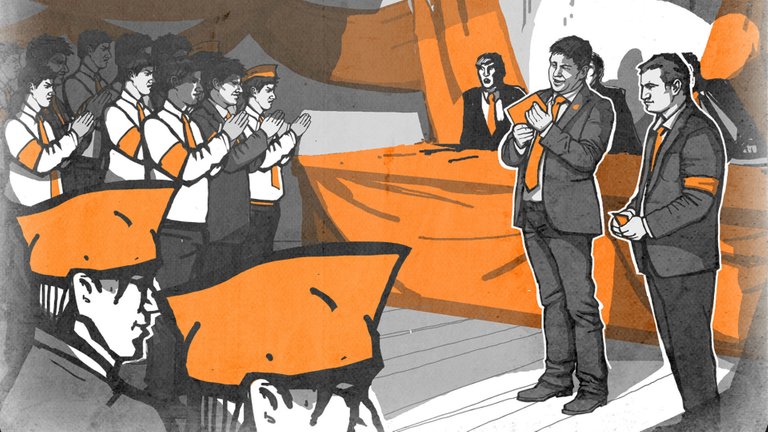
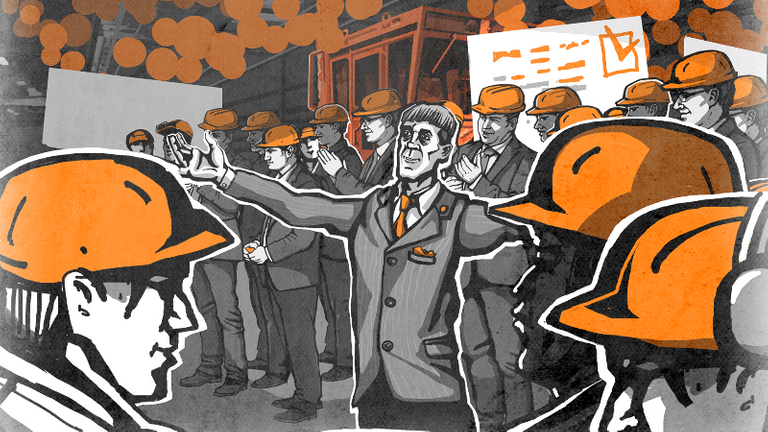
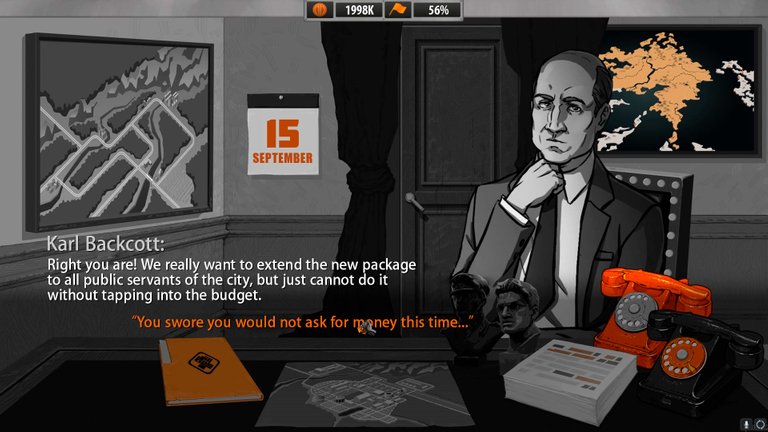
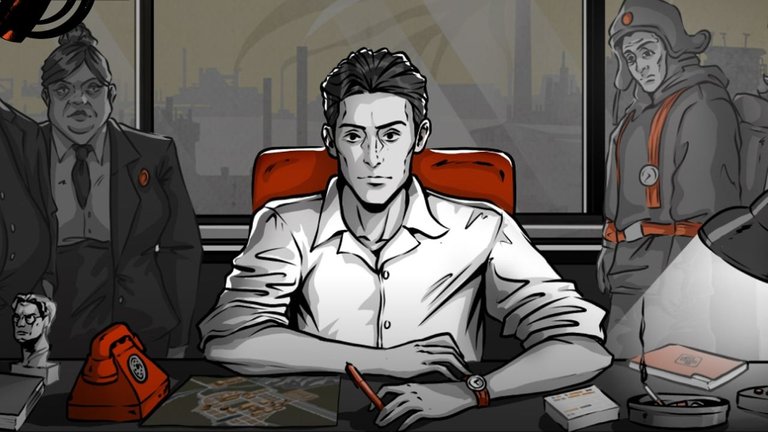
The game is divided by segments, on the one hand we will be a mayor pending to satisfy the complaints of its citizens, solve them will increase our popularity and productivity but it will cost us money to attend them, money that we will have in drops between each of the activities as well as in some aid of our party, this will make us think very well before helping the citizens instead of helping our position to continue mooring the power, the game has a tendency to always get us into moral decisions that seem impossible to solve satisfactorily for both sides, on top of this we will have the problems of the party itself, in which we will have to plan together with our own officials how to proceed and succeed if we do not want to end up fired or worse still dead.
On the management side there is not too much to do, just remember that we must collect resources from the factories and gradually improve the factories to repeat the process, we must in turn determine what these factories will produce in the day (food, textiles, materials) and how much, also in this part of the day sitting in the office we will receive letters from both citizens asking for help to solve their problems as the party that will give us missions to perform at night, each of the dialogues either of the letters or of the members of our cabinet are very well achieved to focus everything that meant the hierarchy of the time, "us first, before them" can be heard often in the game and I can not help but be influenced by this motto as I play, The missions given to us by our superiors can vary from spying on suspected "betrayers" of our ideals to intimidating political opponents, there is a little bit of everything but the game is very clear that its narrative is what makes each of the actions we take stand out.
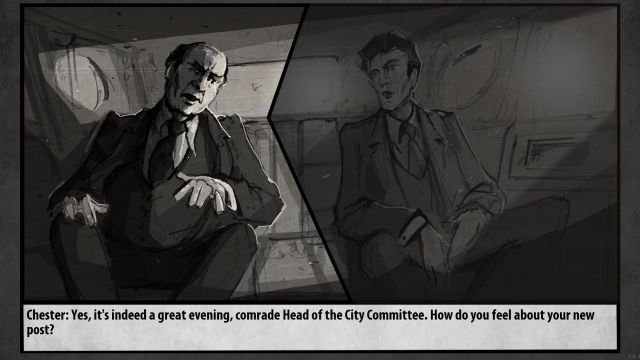
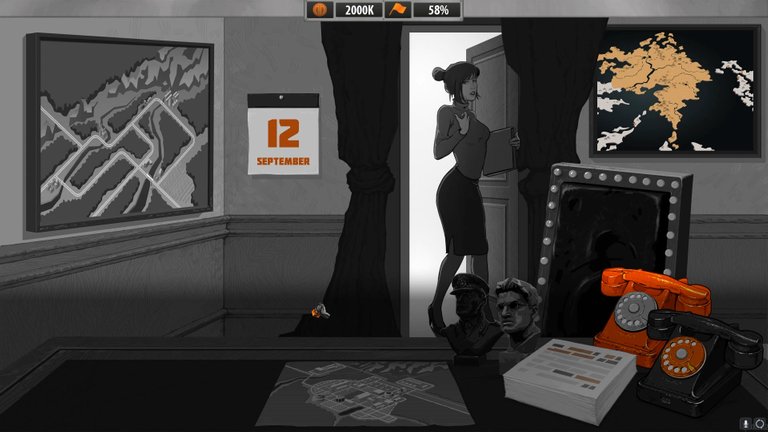

For the People complies with having a narrative that immerses us in this period of decadence but there are several things that have disappointed me a little, the first is the depth offered by the title, which is null in many of the mechanics but especially in the management part, where we will have very few options and we will only repeat in cycles what we have done from the first moment, The same thing happens with the missions that are given to us and although they are interesting they depend on their narrative to be able to entertain in the middle of its mechanics, the development of this game has not been easy and has gone through several stages but without a doubt what I could enjoy the most is how it represents these periods and the city where we are in a realistic way, breaking down the waste of those times and making a comment on the corruption that even today is lived in the dictatorships.
